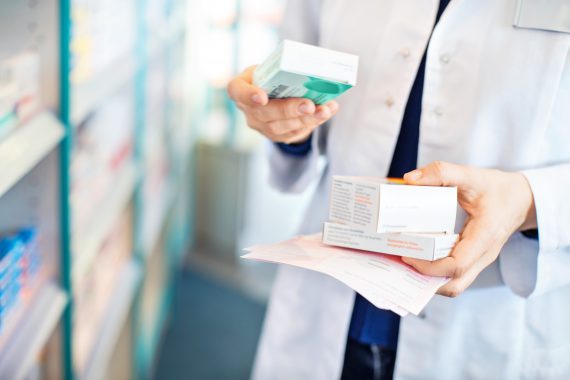GPs are still in the dark as to when they will have to implement burdensome new rules to stop counterfeit medicines, which come into effect next week.
The Falsified Medicines Directive (FMD), which is being rolled out across Europe and will come into effect in the UK from 9 February, will bring in new measures such as unique barcodes and visible anti-tampering devices on all prescription medicines, including vaccines.
So far, GPs have received no confirmation as to what they need to do, but the BMA GP Committee said they may be given as much as a twelve month extension to implement the new fake medicine regime.
Under the changes GPs will have to scan all medicines and vaccines before they are given or administered to patients, to check they are legitimate.
GPs will end up spending more time dispensing and their IT systems will need to be updated to allow the medicines to be scanned, it said.
But in an update to GPs last week, the GPC said it expects there to be ‘a long lead time and that full implementation will not happen for at least 12 months,’ although this is yet to be confirmed.
Practices have been advised to contact their system suppliers and await their confirmation as to timescales and process.
GPC chair Dr Richard Vautrey said: ‘The directive introduces tougher rules to ensure medicines are safe and that the trade in medicines is rigorously controlled. This will have an impact on all practices and therefore, they should be preparing for implementation in order to demonstrate compliance with the directive.
‘We are currently waiting for further details from NHS England and these will be communicated as soon as they are available.’
NHS England told Pulse that it did not have any further updates on the situation.
The Falsified Medicines Directive
The Falsified Medicines Directive is legislation passed by the EU Parliament is aimed at increasing the security of the manufacturing and delivery of medicines in Europe. It is designed to ensure prescribed medicines are safe, legitimate and not copied to be resold illegally to patients.
The directive will come into force in the UK from 9 February 2019 and under the FMD, all new packs of prescription medicines placed on the market in Europe will have to bear two safety features:
- a unique identifier in the form of a 2D barcode that will comprise of a product code to allow identification of at least the name of the medicine, the common name, the pharmaceutical form, the strength, the pack size and the pack type, a serial number which will be a numeric or alphanumeric sequence of a maximum of 20 characters randomly generated, a batch number, and an expiry date
- anti-tampering device.
Manufacturers have the responsibility to upload the serial numbers to a system of national databases linked by a European hub, while country-based national data repositories will allow verification at different times and final decommissioning when each pack is dispensed to a patient.
All GP practices will need to have infrastructure and processes in place to decommission medicines, even non-dispensing practices that prescribe and administer vaccines.
Source: MHRA
Pulse October survey
Take our July 2025 survey to potentially win £1.000 worth of tokens

Visit Pulse Reference for details on 140 symptoms, including easily searchable symptoms and categories, offering you a free platform to check symptoms and receive potential diagnoses during consultations.












